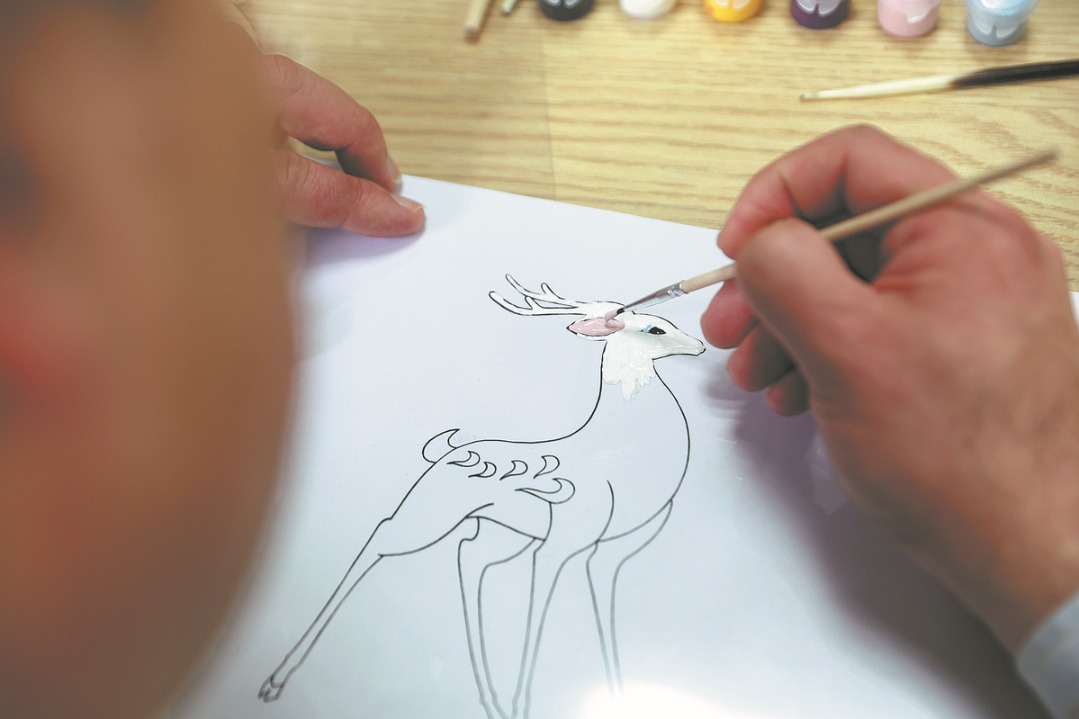Global response must also protect rights of women and girls

In a week in which people in some parts of the world have been given cause for optimism that they have passed the peak of the COVID-19 pandemic, we have seen how the extraordinary actions of individuals can change the trajectory for a whole nation. Retired doctors putting themselves back on the front line, nurses making their own face masks so they can treat the sick, parents separated from their children so they can care for people suffering from the virus.
More often than not, these are women. Globally, women make up 70 percent of the health workforce. They also play the majority of care-giving roles in homes and in communities. Women do this essential work in spite of obstacles and inequalities.
That's why our updated Global Humanitarian Response Plan to fight the novel coronavirus, published on Thursday, has women at its heart. We know from experience that investing in women and girls produces dividends for all. We see that again with COVID-19. In hospitals and in homes, women are on the front line in this fight against COVID-19. We know local actions translate into global gains. If there is one thing we have learned about this pandemic, it's that the world is in this together, and we can only defeat it if we act as one.
According to the International Labour Organization, women perform 76 percent of the total hours of unpaid care work globally. They will carry more of the weight of caring for the sick and helping to stem the spread of the virus.
We must equip women with what they need. Let's enable them to stay safe and supported. It's the right thing to do but also the smart thing to do so they can continue to save and improve lives.
As health systems become stretched, many people with COVID-19 will need to be cared for at home. This will add to women's workload, and put them at greater risk of becoming infected.
And as the world fights the COVID-19 pandemic, we know we have another epidemic to overcome-the violence perpetrated against women, and the inequalities that leave them more likely to be living in poverty and without access to essential services.
We know lockdowns and quarantines are essential to suppress COVID-19. Yet they can trap women with abusive partners. Over the last few weeks, there has been a dramatic jump in reported incidences of domestic violence in many countries. In some countries, the number of women calling support services has doubled.
Humanitarian settings already stressed by years of war and poverty will not be any different, except that often there are few places to report the abuse or to seek shelter so that women and their children can stay safe.
If we are serious about defeating this virus, we must promote and protect the health and rights of women, for their own well-being so that they can continue to promote and protect the health of others. That is why the United Nations' global humanitarian response plan to fight COVID-19 sets out specific actions to achieve this in the most vulnerable settings.
This global plan is already helping install hand-washing facilities that are safe for women and girls to access; deliver vital medical equipment and supplies, including to address women's health; and getting aid workers and supplies to where they are needed most.
The plan recognizes the disproportionate impact of the pandemic on women and girls. It also recognizes their power to defeat the virus. The UN Population Fund (UNFPA) will use resources from the appeal to prioritize the needs of women and girls-including working with women's groups on the ground to create safe spaces.
All this is possible because of the generosity of donors. Much more is needed. We count on donors to continue funding the COVID-19 humanitarian response plan while sustaining support for existing humanitarian and refugee response plans. And we urge all governments to make the prevention and redress of violence against women a key part of their national response plans for COVID-19.
Every day, women are overcoming obstacles and inequalities to treat and care for those infected with the virus, working hard to contain the virus, and helping their families and communities protect themselves.
We owe it to these women to give them the tools and services they need, and the justice and equality that is their right-in hospitals, in homes, and in their communities.
We are determined to do everything we can to fight this deadly virus, and that means addressing the inequalities that will otherwise hold all of us back.
Natalia Kanem is United Nations under-secretary-general and executive director of the UNFPA; and Mark Lowcock is UN under-secretary-general and emergency relief coordinator, UN Office for the Coordination of Humanitarian Affairs. The views don't necessarily represent those of China Daily.
Today's Top News
- China to maintain pressure on Japan over PM's Taiwan comments
- Free trade zones incubators for nationwide policies
- US scholar: China's 15th Five-Year Plan charts path to future
- Coding the law for smart governance
- China ready to take tougher steps over Takaichi remarks
- Mobile judicial teams ensure justice for all






























